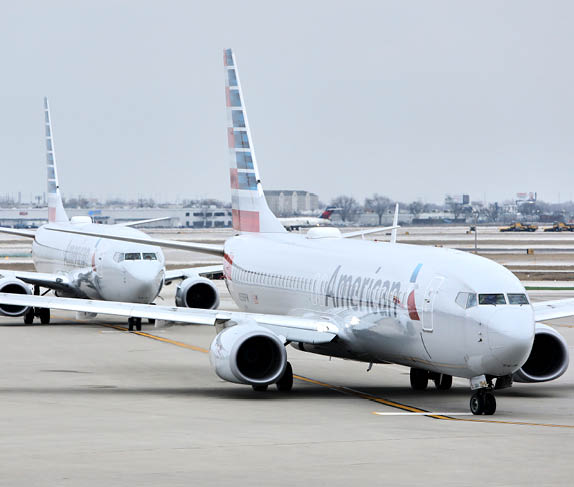Boeing CEO and president Dennis Muilenburg will testify before the US Senate Committee on Commerce, Science and Transportation regarding aviation safety and the 737 MAX airplane.
In a written testimony, Muilenburg has acknowledged that the aircraft manufacturer "made mistakes" as he spoke about the two 737 MAX crashes that killed 346 people.
Muilenburg, who was stripped of his title as Boeing chairman by the board earlier this month, will also testify before the US House of Representatives Transportation and Infrastructure Committee on Wednesday.
Earlier this month, Boeing also replaced Kevin McAllister from his role as CEO of Boeing Commercial Airplanes, amid the growing 737 MAX crisis.
In the written statement, Muilenburg first and foremost expressed his deepest sympathies to the families and loved ones of those who were lost in the Lion Air Flight 610 and Ethiopian Airlines Flight 302 accidents.
Muilenburg said: "As we observe today the solemn anniversary of the loss of Lion Air Flight 610, we carry the memory of these accidents, and the lives lost, with us every day. They will never be forgotten, and those memories drive us every day to make our airplanes and our industry safer.
"We have learned and are still learning from these accidents. We know we made mistakes and got some things wrong."
Last week, Indonesian investigators criticised the design of the anti-stall system known as MCAS – this caused the plane’s nose to be pushed down automatically leaving pilots fighting for control.
Boeing has said it is making robust improvements to the 737 MAX flight control software. "We have brought the very best of Boeing to this effort," said Muilenburg. "We've dedicated all resources necessary to ensure that the improvements to the 737 MAX are comprehensive and thoroughly tested. When the 737 MAX returns to service, it will be one of the safest airplanes ever to fly."
Muilenburg noted that both crashes involved the repeated activation of a flight control software function known as MCAS after it received faulty sensor input.
To combat this Boeing has said that the Maneuvering Characteristics Augmentation System (MCAS) flight control software function has been updated to provide additional layers of protection, including MCAS now comparing information from both angle of attack sensors before activating and will only respond if data from both sensors agree, MCAS will only activate a single time; and MCAS will never provide more input than the pilot can counteract using the control column alone.
Boeing says that these changes will prevent the flight control conditions that occurred on the Lion Air 610 and Ethiopian Airlines 302 flights from ever happening again. Boeing has dedicated more than 100,000 engineering and test hours on the development of these improvements, flown more than 814 test flights with the updated software and conducted numerous simulator sessions with 545 participants from 99 customers and 41 global regulators.
Boeing's recent third-quarter results have shown the planemaker is struggling amid the crisis, announcing it will cut production of its flagship Dreamliner, and delay the arrival of a successor to its 777 mini-jumbo.
During the Q3 2019 results, Boeing reiterated that it still expects the MAX, its best selling plane, which was grounded worldwide after two fatal crashes, to get approval from regulators such as the US Federal Aviation Administration (FAA) to fly again before the end of the year.
However, the company was quick to stress that production costs are expensive for the aircraft, with costs for the 737 MAX rising by $900 million in the third quarter, in addition to the $2.7 billion in extra costs it announced earlier this year.
During the quarter, Boeing reported revenue of $20 billion, down 21% from the $25 billion experienced in the same period last year. The company said this reflected “lower 737 deliveries partially offset by higher defence and services volume”.
Boeing has assumed that regulatory approval of the 737 MAX will be granted in the near future with a return to service beginning in the fourth quarter of 2019 and that it will gradually increase the 737 production rate from 42 per month to 57 per month by late 2020. This is later than what the company planned earlier this year when it said it would like to increase production from 42 to 47 single-aisle aircraft per month in October, and then increase aircraft to 52 a month – the previous pre-crash rate.

